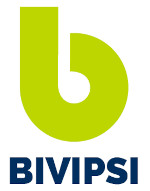O inconsciente na pós-modernidade: as tensões epistêmicas
Abstract
Weakening, or even simply discarding, the possibility of access to valid knowledge, which is a characteristic of the current historic moment – that is, the postmodernity and the postmodernism as a literary and philosophical ideology – only brings tensions, limitation and conceptualization to the access to the unconscious. The present article focuses on some aspects of this complex matter, especially on the impact on how the scientific features and the modus operandi of psychoanalysis are understood based on the classic and romantic universal points of view. It also analyzes how the restrictive versions of the idea of science are employed when one considers the relevance of the psychoanalytical method as a valid empirical approach and, thus, returns to the literature and philosophy the exclusiveness of the human psychism, which is considered as part of their domain by the above mentioned disciplines.
Downloads
References
AHUMADA, J. L. (1994). O que é um fato clínico? A psicanálise clínica como método indutivo. In: ______. Descobertas e refutações. A lógica do método psicanalítico. Rio de Janeiro: Imago, 1999, 199-219.
______. (1997a). Crise da cultura e crise da psicanálise. In: ______. Descobertas e refutações. A lógica do método psicanalítico. Rio de Janeiro: Imago, 1999, 13-31.
______. (1997b). A contra-indução na prática psicanalítica: Aspectos metodológicos y técnicos. In: ______. Descobertas e refutações. A lógica do método psicanalítico. Rio de Janeiro: Imago, 1999, 221-244.
______. (1997c). Para uma epistemologia da psicanálise clínica. In: ______. Descobertas e refutações. A lógica do método psicanalítico. Rio de Janeiro: Imago, 1999, 257-277.
______. (1997d). Descobertas e refutações. A psicanálise clínica como lógica da indagação. In: ______. Descobertas e refutações. A lógica do método psicanalítico. Rio de Janeiro: Imago, 1999, 341-358.
______. (2001). The rebirth of the idols. The Freudian unconscious and the Nietzschean unconscious. Int. J. Psychoanal. v. 82, n. 2, p.219-234.
______. (2003). La objetividad en el marco clínico: el doble trabajo de las evidencias. Panel: Idea y observación: ¿puede la observación clínica evaluar las interpretaciones y las teorías?” 43º Congreso de la IPA, Nueva Orleans. www.ipa.org.uk
FOUCAULT, M. (1969). L’ Archéologie du Savoir. París: Gallimard.
FREUD, S. (1925). An autobiographical study. In: Standard Edition. v.20, London: The Hogarth Press, 1962.
GRÜNBAUM, A. (1984). The foundations of psychoanalysis. A philosophical critique. Berkeley: University of California Press.
HOLLAND, N. N. (1998). Reader-response criticism. Int. J. Psychoanal. v.79, n.6, 1203-1211.
HULME, T. S. (1924). Classicism and romanticism. In: ______. Speculations. London: Routledge.
JAMESON, F. (1991). Postmodernism, or the cultural logic of late capitalism. Durham: Duke University Press.
MILLER, J. (1993). La pasión de Michel Foucault. Santiago de Chile: Andrés Bello, 1995.
RICOEUR, P. (1970). Freud and Philosophy. An essay in interpretation. New Haven: Yale Univ. Press.
STRENGER, C. (1989). The classic and the romantic vision in psychoanalysis. Int. J. Psychoanal. v.70, n.4, 593-610.
______. (2002). The quest for voice in contemporary psychoanalysis. Madison: International University Press.
TRUPP, M.S. (1999). Letters to the editor. Response. Int. J. Psychoanal. v. 80, n.1, 171.
Downloads
Published
How to Cite
Issue
Section
License

This work is licensed under a Creative Commons Attribution-NonCommercial-NoDerivatives 4.0 International License.
Atribuo os direitos autorais que pertencem a mim, sobre o presente trabalho, à SPPA, que poderá utilizá-lo e publicá-lo pelos meios que julgar apropriados, inclusive na Internet ou em qualquer outro processamento de computador.
I attribute the copyrights that belong to me, on this work, to SPPA, which may use and publish it by the means it deems appropriate, including on the Internet or in any other computer processing.
Atribuyo los derechos de autor que me pertenecen, sobre este trabajo, a SPPA, que podrá utilizarlo y publicarlo por los medios que considere oportunos, incluso en Internet o en cualquier otro tratamiento informático.










